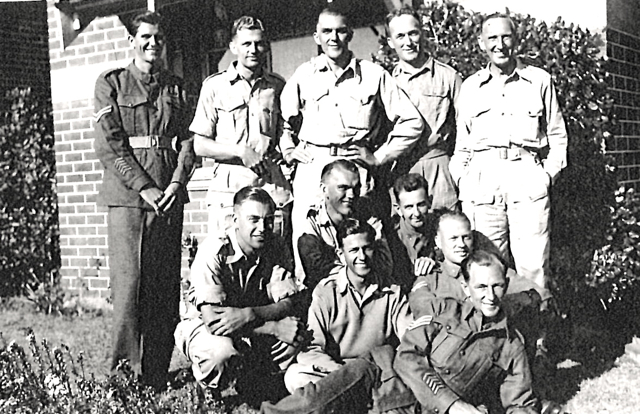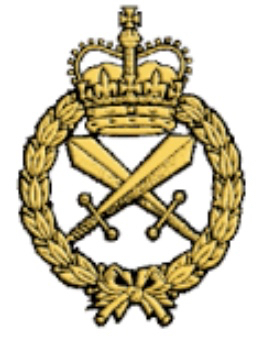The Soldier's Details

- Surname:
- Baker
- First Name:
- John Andrew
- Nick Name:
- Jack
- Rank:
- Corporal (Promoted 12.2.1942)
- Regimental #:
- WX8962
- Company:
- ‘C’ Company - Clerk
- Enlisted:
- 25.10.1940
- Discharged:
- 22.02.1946
- DOB:
- 21.03.1918
- Place of Birth:
- Warrninster, Wiltshire, England
- Father's Name:
- Henry Andrew Baker
- Mothers's Name:
- Dorothy Winifred Baker (nee Beckett)
- Religion:
- Church of England
- Pre-war Occupation:
- Accountant
- Singapore:
- Selarang Camp Changi
- Force:
- 'A' Force Burma, Green Force, No. 3 Battalion.
- Camps Thailand:
- Tamarkan, Chungkai, Nikhe Wood Camp (commanded several parties of thirty or more POW’s as wood cutters on the railway), Tamuang
- Camps Burma:
- Victoria Point, Kendau 4.8km, Thetkaw, Meiloe, Augganaung
- POW#:
- 1331
- Return Details 1945:
- Thailand-Singapore by aircraft, Singapore-Fremantle, HMT Circassia.
General Description
John Andrew Baker, standing 2nd from Left.
Photo taken October 1945 – The men all returning as POWs from Burma Thai Railway. (Jack only 2/4th member in photo)
Jack Baker, clerk “C” Company, was one of many who jumped ship at Fremantle. (He was then a married man and no doubt wanted to see his wife). He managed to board ‘Aquitania’ before the ship left on 16th January 1942. Major Green later reinstated the stripes Jack lost over the incident.
Jack was lucky twice over – firstly to manage to board the ‘Aqutinia’ when nearly 90 men were left behind and secondly to have his stripes reinstated when so many many men did not.
Baker manages to have a message sent to his parents. He is POW at Moulmein, Burma and is with Harry Hammer and Fred Pritchard.
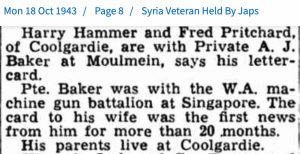
In 1948, Jack’s wife, Rhoda Catherine (nee Douglas) known as Bonnie died of illness. They had married in 1941. For Jack this was a horrendous tragedy – he had only been back home no more than three years.
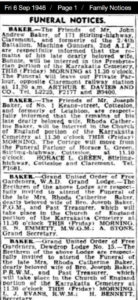
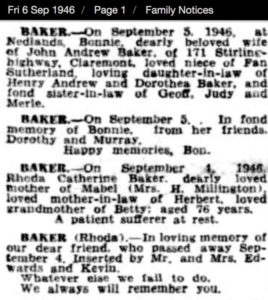
Jack Baker thereafter moved to live in Fiji where he managed a plantation and lived for many years.
He retired to live in Paradise Waters, Queensland ‘lived a long life’ as they say, and died in 2015. Jack was a member of the RSL Surfers Paradise where he was highly thought of. Jack and the late Ron Badock maintained telephone contact throughout the latter years. His news would be passed onto to the Assoc and recorded in the Borehole Bulletin.
Jack’s parents Henry Andrew Baker (enlisted WW1) and English born Dorothy Winnifred Beckett married 2 June 1917 at Tedworth Camp, England. Their first son John (Jack) Baker was born Warminster, Wiltshire England 21 March 1918. Jack’s two siblings were born in WA, Geoffrey in 1920 and Boronia in 1923 both in Katanning.
Henry Baker born in SA, enlisted at Helena Vale 9 January 1915 aged 34 years. He was then unmarried and gave his NOK as his mother, Mrs J.S. Baker, Katanning, WA. His previous occupation was fettler. His Service No. was 1454 and he initially joined reinforcements for 12th Battalion, then joined Anzac Police and finally Provost Corps. Henry was quite badly wounded at least twice. The first time was shrapnel wound to his back.

The Royal Australian Corps of Military Police (RACMP) is a corps within the Australian Army. Previously known as the Australian Army Provost Corps, it was formed on 3 April 1916 as the ANZAC Provost Corps.
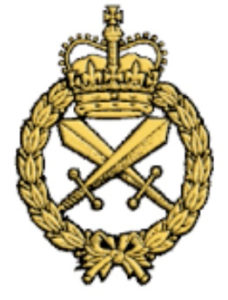
Corps Colours: Scarlet and Black
Role: Military Police
Active: 3 April 1916-present
Branch: Army
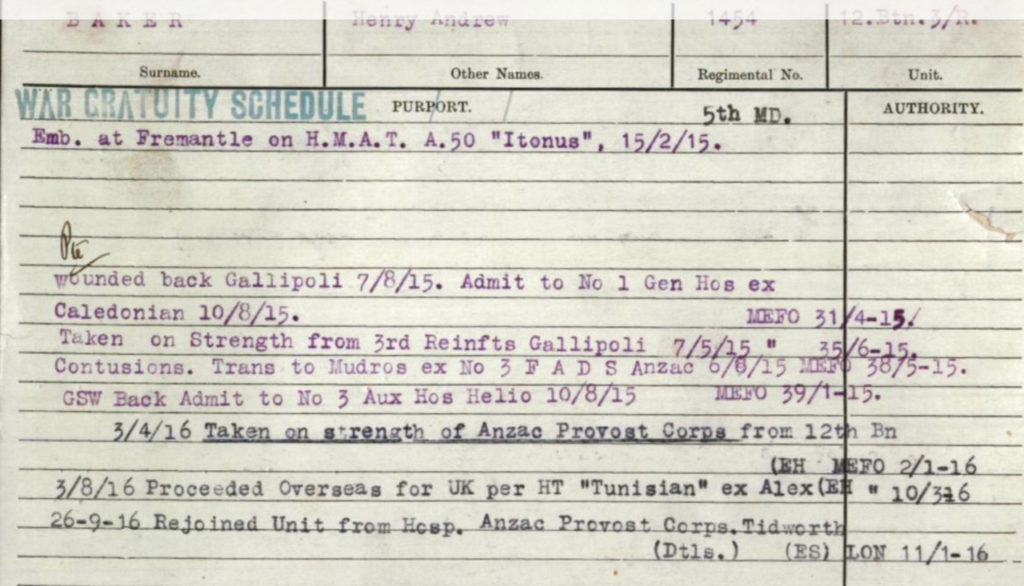
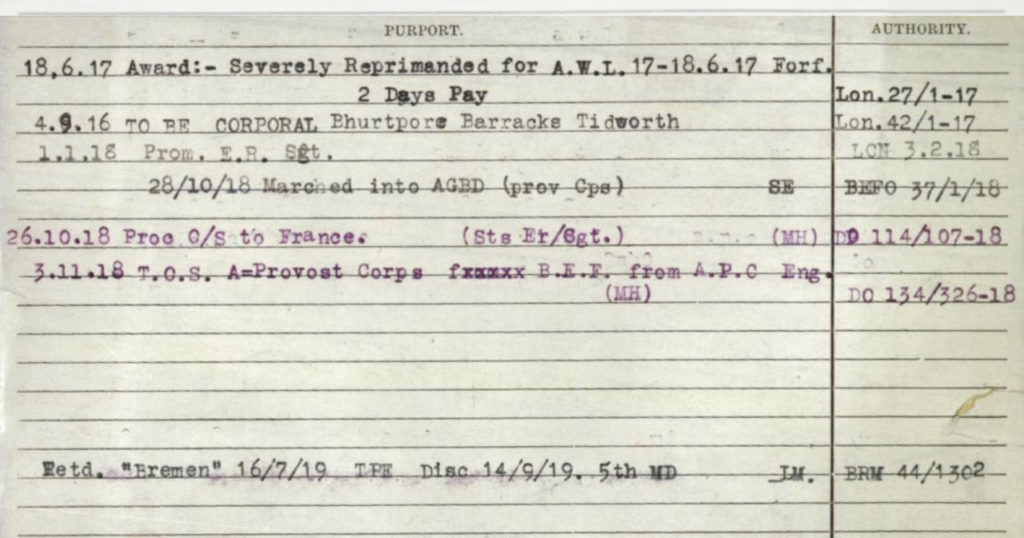
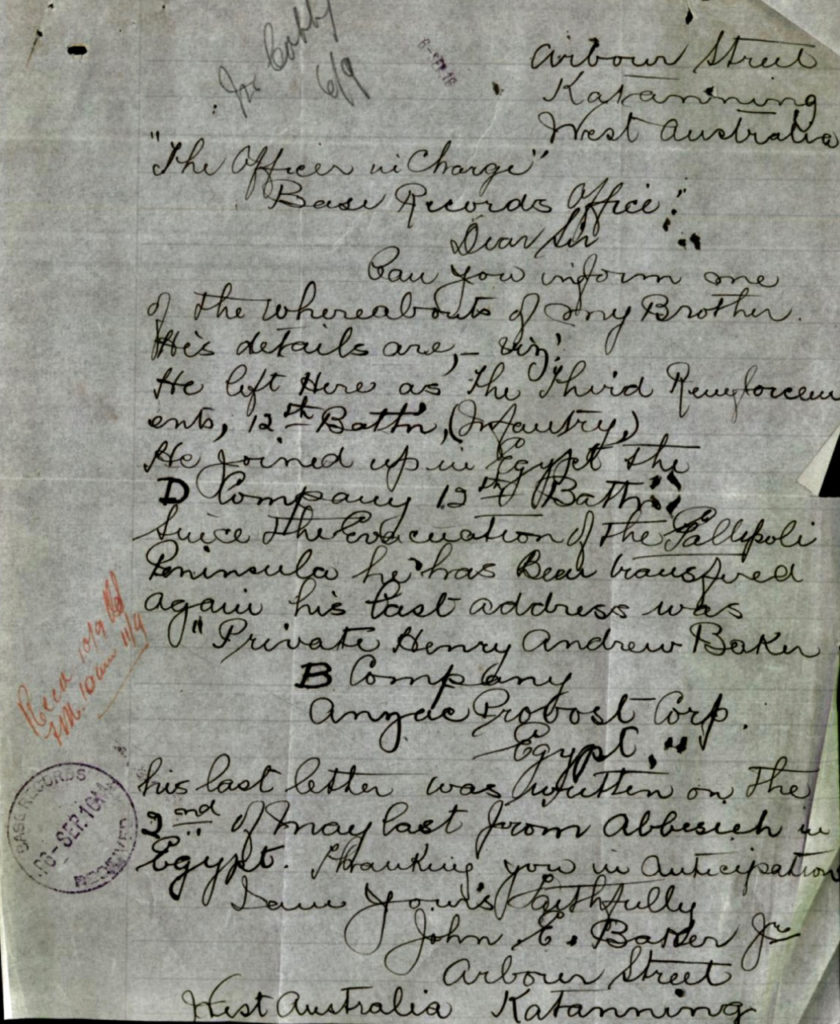
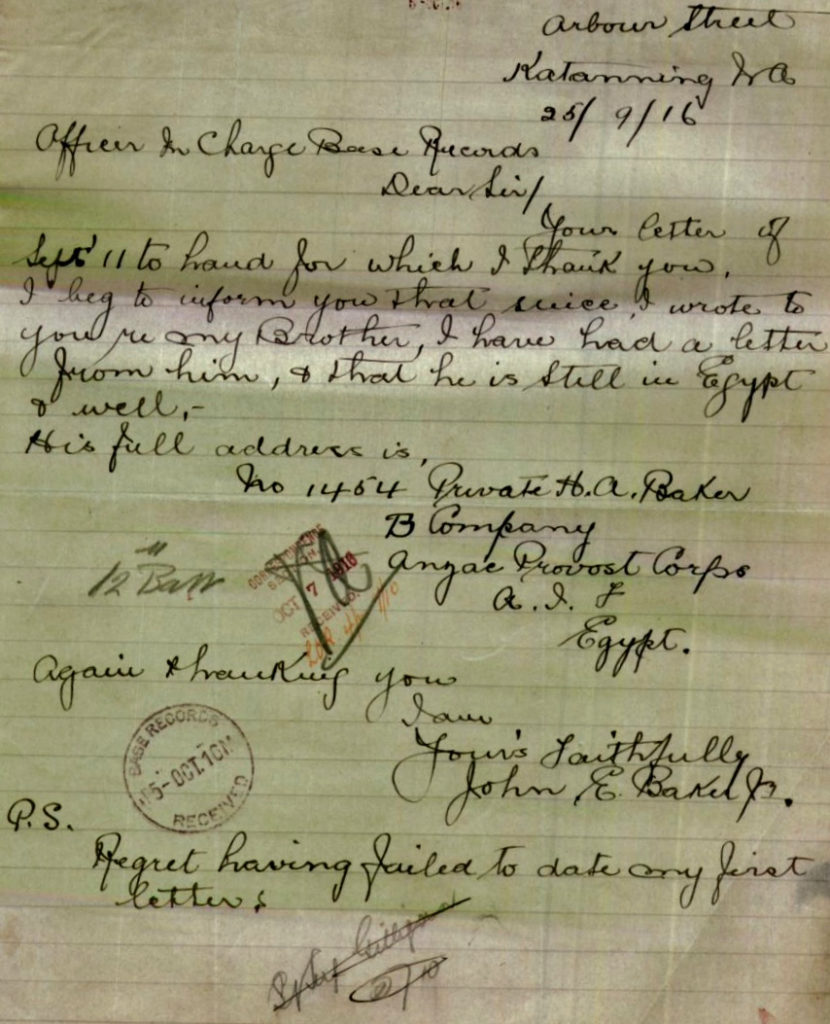
Above: correspondence from Henry Baker’s Service File.
He returned to Australia 24 July 1919.
Henry Baker died in Perth 1960 and Jack’s mother Dorothy died in 1965.
Jack Baker aged 15 years on 1 Nov 1933 began working as Junior in the Mechanical workshop, WAGR. In July 1934 he commenced as a clerk, having obtained shorthand proficiency. Jack remained in this clerk’s role until he resigned 13 March 1937.
Jack’s last address prior to enlisting was given as Cheriton Street, East Perth, and he was clerk. He may well have gone back to work for railways. Shorthand was a rare skill, absolutely necessary for communication and relaying messages. The Railways was a huge operator throughout WA (and the world) it was the main form of transport as most people were unable to purchase vehicles.
Following surrender to the Japanese at Singapore Jack became a POW along with the thousands of Allied soldiers. The Australians were accommodated at Selarang, and from there sent out on work parties, sometimes accommodated as such places as Adam Park.
Jack remained at Selarang and was selected with the first work force to leave Singapore – ‘A’ Force Burma, Green Force No. 3 Battalion. ‘A’ Force made up of 3,000 POWs departed Singapore harbour in three small ships on 14 May 1942 and headed to the south west coast of Burma.
Jack with Green Force (with the largest number of 2/4th men as was ‘D Force Thailand, S Battalion) went to Victoria Point to spend several months repairing and enlarging the existing aerodrome. Work here was comparatively civilised compared to what lay ahead of them on the railway.
Green Force No. 3 Battalion reached northern most point of Burma-Thai rail link and were first Australians to work in Burma, at Kendau 4.8km Camp on 1st October through to 1 December 1942. Thereafter they moved to 4 or 5 major camps working on the rail link until the end of December 1943 when the Japanese began to send all POWs in Burma southwards to the larger camps in Thailand. He was initially sent to Tamarkan.
At the end of the war Jack was recovered from Tamuang Camp, probably sent to Bangkok and then flown to Singapore.
Jack Baker remarried at some time later and had a family.
Camp Locations:
- Selarang Camp Changi - Singapore
- Chungkai, 60k - Thailand
- Nikhe Wood Camp, Ni Thea, 131 Kilo, 284k - Thailand
- Tamarkan, Tha Makham 56k - Thailand
- Tamuang, Tha Muang 39k - Thailand
- Aungganaung,105Kilo - Burma
- Kendau, Kandaw, 4 Kilo - Burma
- Meilo, 75 Kilo, 340k - Burma
- Victoria Point, Kawthoung - Burma. \'A\' Force, Green Force No. 3 Btn
- Thetkaw 14 Kilo - Burma

